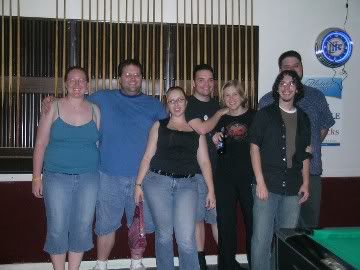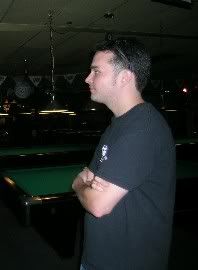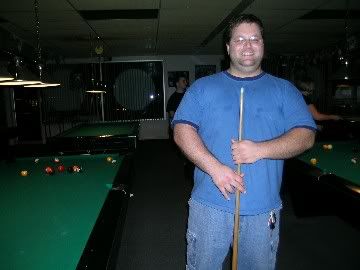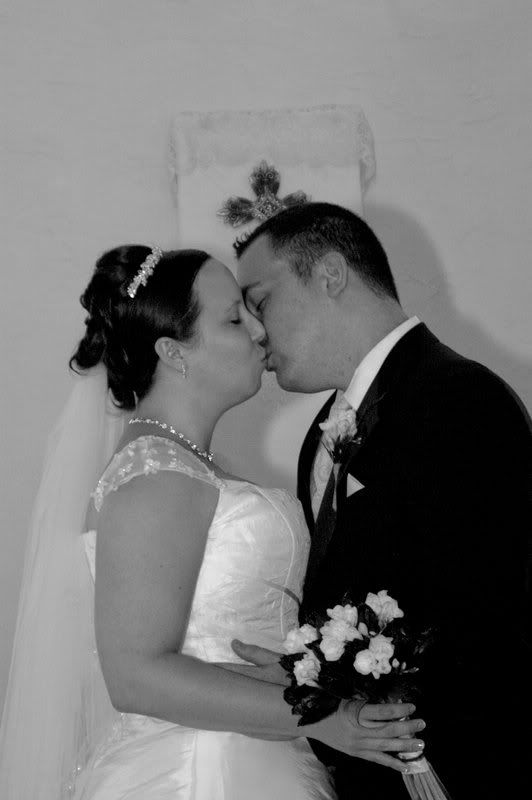So VG wanted to know what my brother's condition is, so I thought I would post just about that. My brother has Asberger's Syndrome, also called Asberger's Disorder. It's a form of autism where one is able to function but lacks all social skills necessary to interact. He focuses very well on single things (for 6 months it was spiders, now it's history) but doesn't react well to any sort of change or imbalance. The night before and the morning school starts he gets very bad anxiety attacks. When he can't process change he breaks down and will cry. Things that frustrate him start him screaming, but then if you try to calm him he'll cry. If he laughs so hard he gets the hiccups, he cries. He does all his work for school but refuses to turn it in. He gets all Ds and Fs in class for not turning in work but aces every test he takes. In middle school other kids would stick tape on his back with bad words and he never even noticed. In high school my mother had a conference with his teachers and they told my mom they thought he was like the Columbine kids because he doesn't interact with anyone. My mom was mortified that they don't know how to deal with someone like him. He's a loner because he doesn't understand social cues and how to behave "normally." Most of his friends have learning disorders or autism. One of his friends had an assignment where he had to get a friend to write things that he was good at and my brother wrote "He is good at making other people look good" and "He is good at losing at video games." He wasn't trying to be mean, he just didn't understand that that's not the way you act toward other people.
It's very frustrating, and I know I don't see a lot of it because I'm not around for all the problems. But a lot of what he goes through I went through too. I'm pretty sure I have some sort of problem like him, just not to the extent that he does. I love him so much; I'd do anything for him. But I don't want him to be normal -- is that bad?
From this site:
Asperger Syndrome (AS) or (Asperger’s Disorder) is a neurobiological disorder named for a Viennese physician, Hans Asperger. In 1944, he published a paper that described a pattern of behaviors in several young boys who had normal intelligence and language development, but who also exhibited autistic-like behaviors and marked deficiencies in social and communication skills.
Individuals with AS can exhibit a variety of characteristics and the disorder can range from mild to severe. Persons with AS show marked deficiencies in social skills, have difficulties with transitions or changes and prefer sameness. They often have obsessive routines and may be preoccupied with a particular subject of interest. They have a great deal of difficulty reading nonverbal cues (body language) and very often have difficulty determining proper body space. Often overly sensitive to sounds, tastes, smells and sights, the person with AS may prefer soft clothing, certain foods, and be bothered by sounds or lights no one else seems to hear or see.
It’s important to remember that the person with AS perceives the world very differently. Therefore, many behaviors that seem odd or unusual are due to those neurological differences and not the result of intentional rudeness or bad behavior, and most certainly not the result of “improper parenting.” By definition, those with AS have a normal IQ, and many individuals (although not all) exhibit exceptional skill or talent in a specific area. Because of their high degree of functionality and their naiveté, those with AS are often viewed as eccentric or odd and can easily become victims of teasing and bullying. Language development may seem normal, but individuals with AS often have deficits in pragmatics and prosody. Vocabularies may be extraordinarily rich and some children sound like “little professors.” However, persons with AS can be extremely literal and have difficulty using language in a social context.
There is a great deal of debate about how to categorize Asperger’s. It is presently described as an Autism Spectrum Disorder. Some professionals feel that AS is the same as High Functioning Autism, while others feel it is better described as a Nonverbal Learning Disability. Because Asperger Syndrome was virtually unknown until a few years ago, many individuals received an incorrect diagnosis or remained undiagnosed. For example, it is not at all uncommon for a child who was initially diagnosed with Attention Deficit Disorder/Hyperactivity to be re-diagnosed with AS.














